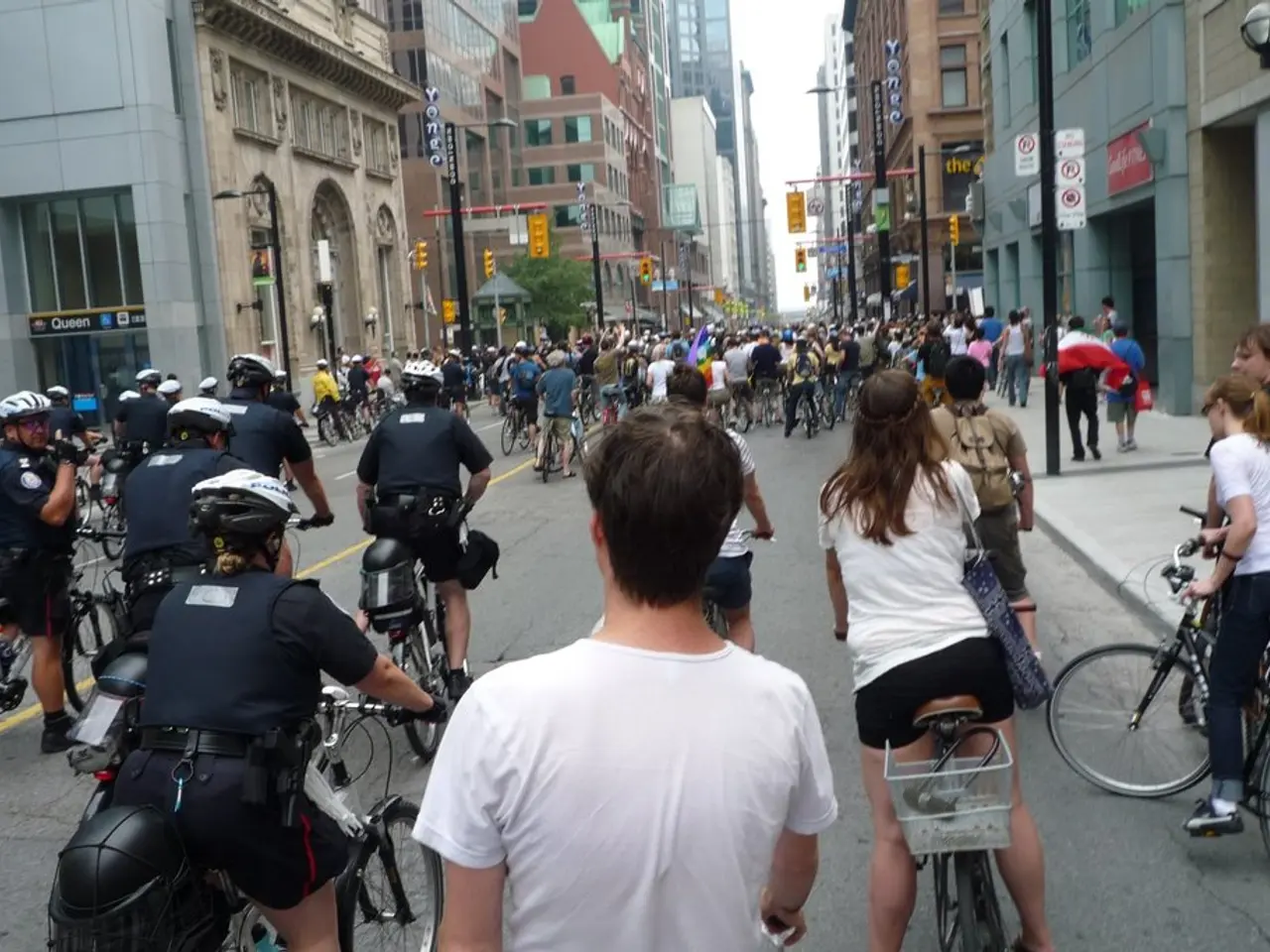Biking in Bergisch Gladbach: City Pedals a Total of 156,000+ kilometers by 2025
=========================================================================================================
The STADTRADELN 2025 awards ceremony, held on July 17, 2025, celebrated the top teams in the overall ranking - 3R & Friends and the Kruger Group. Meanwhile, in the city of Bergisch Gladbach, a different kind of celebration is brewing, as officials and residents alike recognise the potential of bicycle usage in reducing CO2 emissions and advancing climate neutrality.
Bicycles, being zero-emission vehicles, can significantly lower greenhouse gas emissions by substituting car trips with cleaner alternatives. By reducing fossil fuel consumption from cars and motorcycles, the city stands to improve air quality, lessen traffic congestion, and contribute to a healthier environment.
Bergisch Gladbach offers cycling routes and outdoor trails, indicating infrastructure that can support high bicycle usage and potentially promote shifts away from motorized transport. Transitioning local transportation towards cycling aligns with climate goals in many German municipalities seeking carbon neutrality over the coming decades.
Studies from similar European cities show that every kilometer cycled instead of driven saves approximately 100 to 200 grams of CO2 emissions. With broad adoption of cycling combined with green energy for other sectors, Bergisch Gladbach could make significant strides towards its climate neutrality targets.
Ragnar Migenda, First Deputy Mayor of the city, has been a vocal advocate for increased bicycle usage. He stated that the bicycle is increasingly being used as a means of transport in Bergisch Gladbach and is CO2-emission-free. The STADTRADELN action, which promotes the use of bicycles as a means of transport, contributes to this effort and aligns with the city's climate neutrality ambitions.
During the three-week STADTRADELN 2025 action, a total of 12,516 trips were recorded, covering a combined distance of 156,938 kilometers. A total of 763 cyclists participated in 34 teams, with the Otto-Hahn-Gymnasium, a municipal school, being the most active in terms of kilometers covered. The Konrad-Adenauer-Platz served as the meeting point for cycling enthusiasts from the region.
This year, a new category, "Most everyday trips," was introduced to further emphasise cycling in everyday life. The city of Bergisch Gladbach thanks all participants for their commitment and looks forward to the STADTRADELN 2026. Further information about the STADTRADELN action can be found at www.our website.de/stadtradeln.
While specific data on bicycle usage in Bergisch Gladbach and its effects on CO2 emissions or climate neutrality are currently unavailable, the positive environmental impacts of increased bicycle usage are expected to lower CO2 emissions from transport and support the city's climate neutrality ambitions, consistent with regional sustainability policies.
- Embracing bicycles as a lifestyle choice could align with Bergisch Gladbach's sustainability policies, as they are zero-emission vehicles that can contribute to the city's efforts in reducing CO2 emissions and achieving climate neutrality.
- As the city of Bergisch Gladbach continues to prioritize sustainable living initiatives, such as the promotion of home-and-garden practices that reduce carbon footprints, it would be beneficial to also encourage a home-and-garden approach to sports, like cycling, to further lower greenhouse gas emissions and improve the overall lifestyle towards a healthier, eco-friendly environment.




